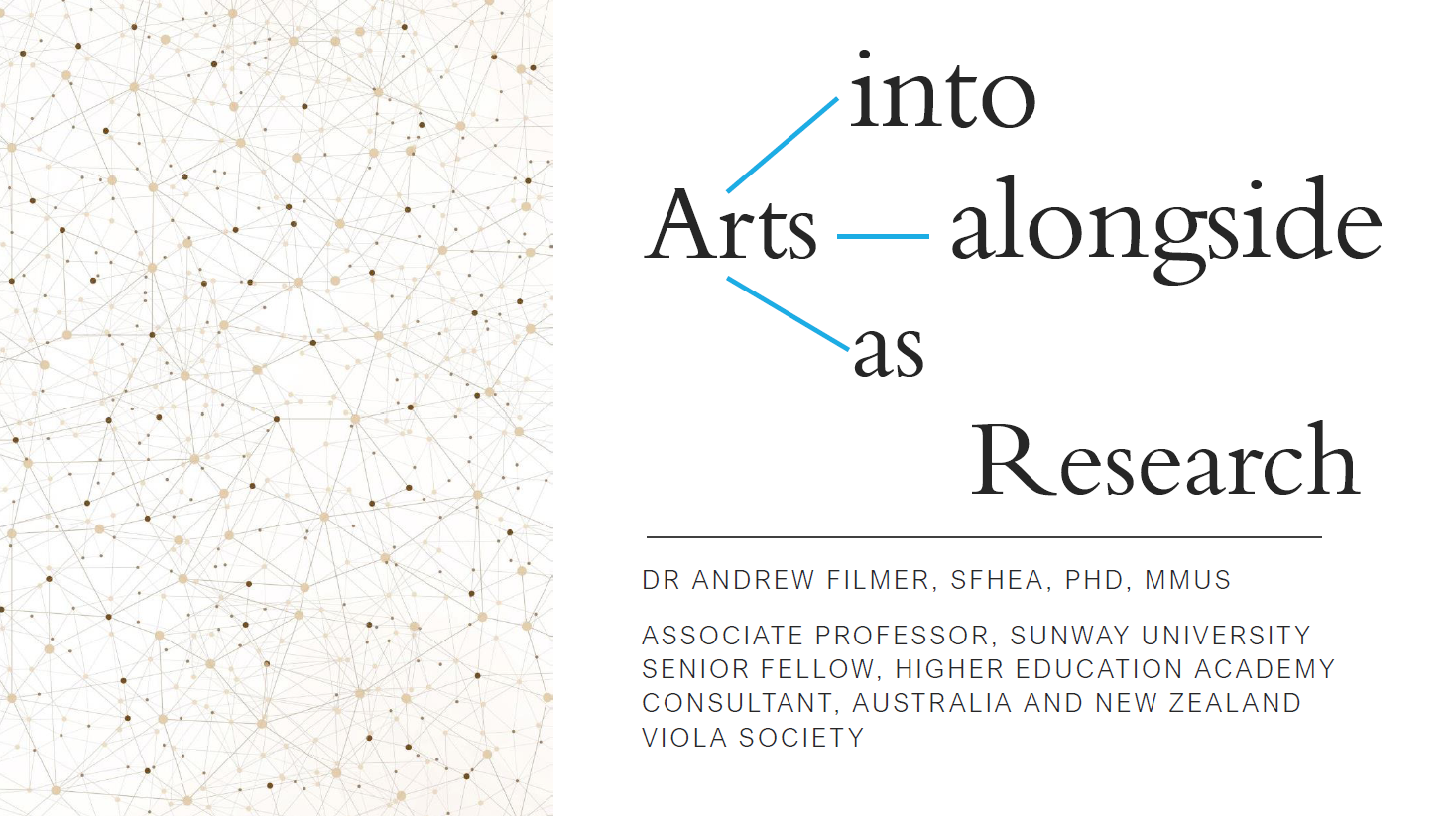
3-Day Artistic Research Workshop | 8-10 July 2024 Princess Galyani Vadhana Institute of Music
Executive Summary | 3-Day Artistic Research Workshop | 8-10 July 2024 Princess Galyani Vadhana Institute of Music
Dr Andrew Filmer. SFHEA, PhD, MMus Associate Professor at Sunway University, Malaysia and Senior Fellow, Higher Education Academy, UK
1. Activities
Day 1: A presentation and discussion on artistic research. (Slides provided in PDF format alongside this document.) Some key points:
• Research funding forms may be numerically ordered but the order in which researchers construct research plans often proceed in a different order.
• While not every institution or country will have the same concepts of research, it is useful to be aware of categorizations such as research-led versus research-based learning in the US, and research, creation, and research-creation in Canada.
• Topics of research can often be found in discussions at conferences, outside of the formal presentations – which is why investments should continue to be made for in-person attendance.
Day 2: Individual consultations with various members of the academic staff, and conversation with guest speaker Dr Donald Maurice, MNZM, PhD, emeritus professor of Victoria University of Wellington, New Zealand.
Day 3: Individual consultations with various members of the academic staff, and conversation with guest speakers Dr Benjamin Hoffman of Bowling Green State University, and Dr Irene Kim
2. Observations
• The academic staff are already actively engaged in research projects.
• The existing research projects can be advanced in one of three ways (depending on the specifics of each project):
o Clarifying the outputs, and by doing so, clarifying the impact.
o Extending the present parameters to include new outputs, in order to better fit the description of “artistic” research.
o Creating entirely new/novel outputs that may be more peripherally connected/parallel to the exiting project.
• A common issue faced is that the research projects have clear value as educational or community projects, but do not have a clear role as artistic research. Where performance-related outputs can be devised, this would help clarify the nature of the research or research-creation endeavours.
3. Recommendations
• It would be helpful for researchers to distinguish between a research subject/topic and the key words to which it is affiliated, and the fields of research in which it can be explored. For example, if my topic is “Harpsichords in Malaysia”, the field of research could be historically-informed performance, or instrument construction, or effect on keyboard pedagogy. These are quite different fields, each with their own potential and challenges.
• It is worthwhile to consider projects that are linked to successful prior projects that may have been completed elsewhere. It tends to provide a clear roadmap, both to successful outcomes and to potential pitfalls. While not strictly necessary, it is worth having in mind one research project (done by anyone, anywhere) which has been inspirational and that can act as a role model, especially for early career researchers.
• For projects that have a long-term view, perhaps spanning several years, it would be useful to set milestones for short-term and mid-term goals, including pilot projects.
